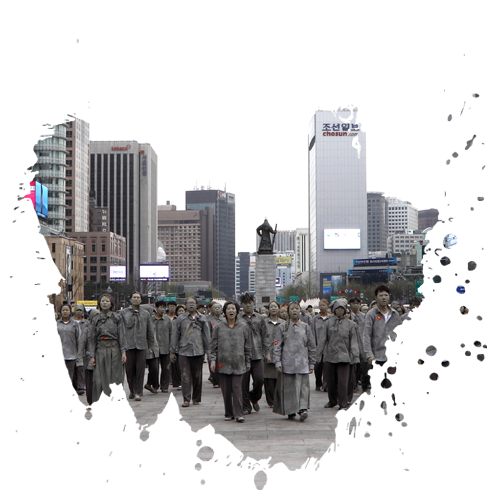From April 3rd to the 7th, 2018, Gwanghwamun Plaza, a public square in the heart of South Korea, was flooded with a wave of camellia flowers. For the first time ever, we heard people’s voices calling for awareness of Jeju 4·3 in the middle of the downtown area of Seoul. Marking the 70th anniversary of the Jeju Uprising and Massacre, people visited the memorial altars created in different regions across the country (including the one at Gwanghwamun Plaza). Visitors apologized and confessed that they had not known much about the painful history, and pledged to join the effort to bring complete resolution to the issue. The impactful scene where all those gathered at the plaza (including victims’ families) could share their transgenerational understanding of Jeju 4·3, will serve as a touchstone for the ‘nationally upscaled awareness and recognition of Jeju 4·3’, which began with the 70th anniversary commemoration.
April 3 70th Anniversary Memorial Service at Gwanghwamun Plaza
The memorial service commemorating the 70th anniversary of Jeju 4·3 was attended by numerous key political and religious figures, including Seoul Mayor Park Won-soon who made a memorial speech. The service bore great significance, as it was the first event in 70 years that was held in Gwanghwamun Plaza, a significant public space for Koreans.
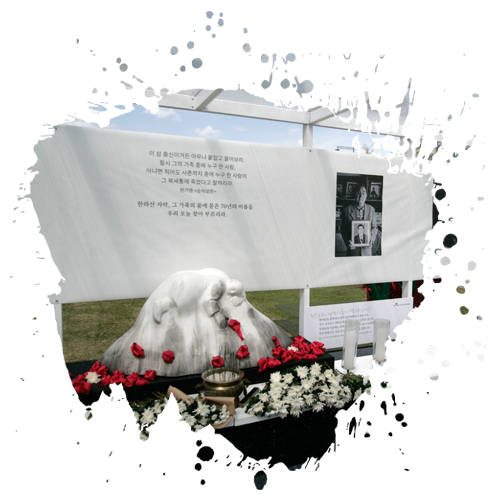
April 3 to 7 Memorial Altar at Gwanghwamun Plaza
The memorial altar at Gwanghwamun Plaza was visited by countless people who laid flowers and paid silent tribute to the victims. A sculpture ‘Embracing Jeju’ by Shin Geon-woo and paintings of victims’ families holding a portrait of the late artist Kim Heung-gu were displayed on the site. The exhibit not only symbolized the significance of Jeju 4·3 and the pain it caused, but also promoted awareness of the importance theat local resistance bears in the contemporary era.
April 3 to 7 Onsite Library at Gwanghwamun Plaza
The Onsite Library, which operated at the plaza from April 3rd to the 7th, displayed self-produced media content, as well as books and exhibit panels on Jeju 4·3, while offering educational activities. Through the various mediums available, the library fulfilled its goal of helping the visitors understand the significance and truth of Jeju 4·3 easily.
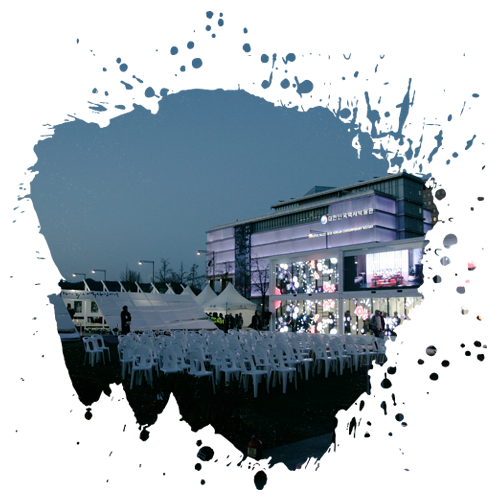
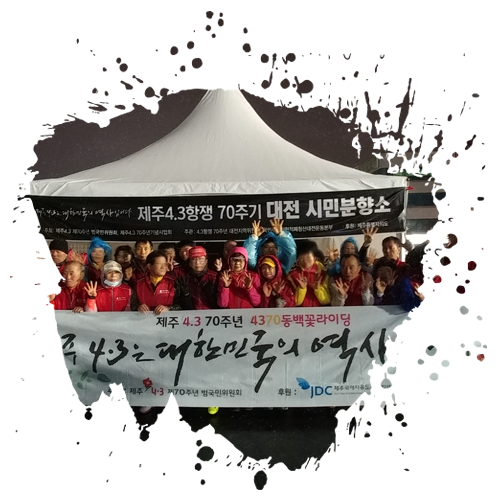
4·3 Cyclists Camellia Riding
April 3 to 7 4·3 cyclists traveled from Jeju to the memorial altars located nationwide through Camellia Riding.
The Peace Chorale performing
April 7 The Peace Chorale, consisting of 4·3 surviving victims and bereaved family members, performed on the stage for the People’s Cultural Festival.
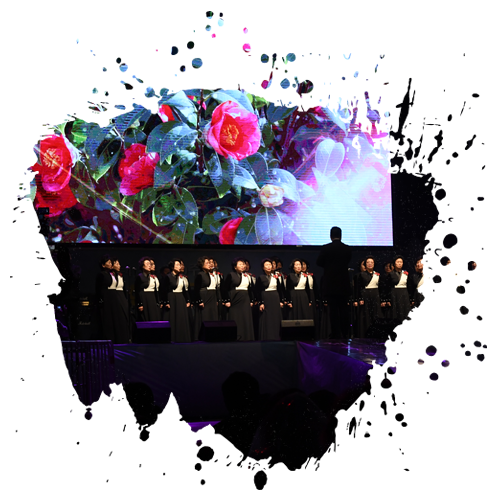
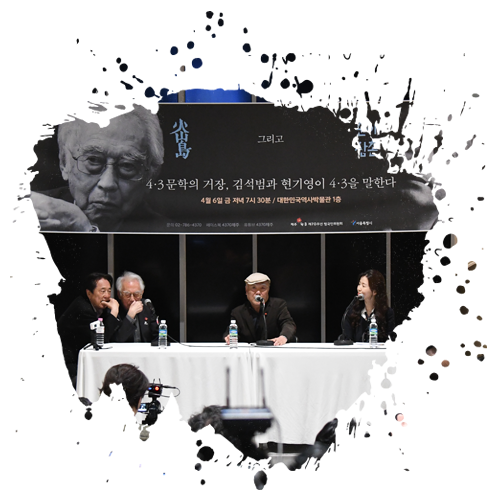
4·3 Book concert in Seoul for the first time.
April 6 Writers Kim Sok-pom and Hyun Ki-kyoung, who have created significant written works on Jeju 4·3, talked to the public in Seoul for the first time.
April 3 403 Gwanghwamun Performance Calling for the Correct Name for Jeju 4·3 at Korea’s Central Area
The first large-scale performance was held with a Jeju 4·3 theme, drawing public and media attention.
